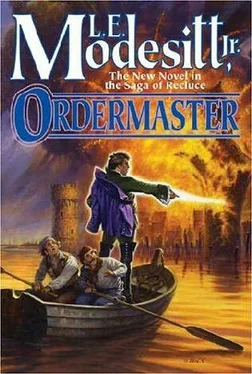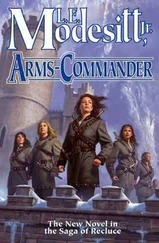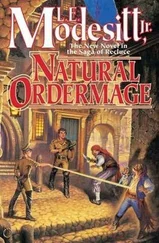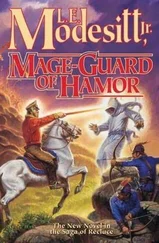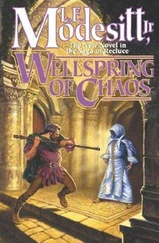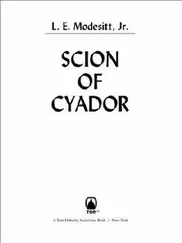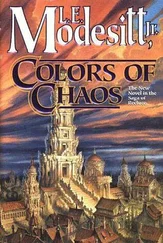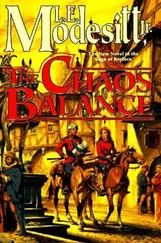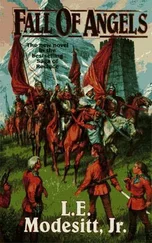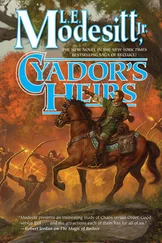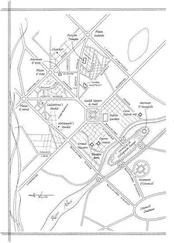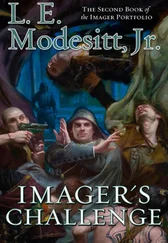L. Modesitt - Ordermaster
Здесь есть возможность читать онлайн «L. Modesitt - Ordermaster» весь текст электронной книги совершенно бесплатно (целиком полную версию без сокращений). В некоторых случаях можно слушать аудио, скачать через торрент в формате fb2 и присутствует краткое содержание. Жанр: Фэнтези, на английском языке. Описание произведения, (предисловие) а так же отзывы посетителей доступны на портале библиотеки ЛибКат.
- Название:Ordermaster
- Автор:
- Жанр:
- Год:неизвестен
- ISBN:нет данных
- Рейтинг книги:4 / 5. Голосов: 1
-
Избранное:Добавить в избранное
- Отзывы:
-
Ваша оценка:
- 80
- 1
- 2
- 3
- 4
- 5
Ordermaster: краткое содержание, описание и аннотация
Предлагаем к чтению аннотацию, описание, краткое содержание или предисловие (зависит от того, что написал сам автор книги «Ordermaster»). Если вы не нашли необходимую информацию о книге — напишите в комментариях, мы постараемся отыскать её.
Ordermaster — читать онлайн бесплатно полную книгу (весь текст) целиком
Ниже представлен текст книги, разбитый по страницам. Система сохранения места последней прочитанной страницы, позволяет с удобством читать онлайн бесплатно книгу «Ordermaster», без необходимости каждый раз заново искать на чём Вы остановились. Поставьте закладку, и сможете в любой момент перейти на страницу, на которой закончили чтение.
Интервал:
Закладка:
Kharl could sense that the tanner was telling the absolute truth, and he would have wagered that Priost knew it as well.
“Did you come to the Great House and tell anyone this? Did you come here?”
“Wouldn’t done no good.”
“Did you try?”
Tellark did not look at the justicer. “Got nothing else to say.”
“You may be seated.”
The guards escorted Tellark back to the other table.
When Jusof had stopped writing, seemingly for the first time since the trial had begun, Kharl cleared his throat, gently.
“Yes, Lord Kharl?”
“What happens next?” Kharl kept his voice low.
“He will decide. There is nothing more to be heard.”
“Now?”
“Shortly.”
Lord Justicer Priost never left his podium desk, but neither did he look up. Upon occasion he wrote something down, but he did not appear to have written that much. After less than a quarter glass he looked up.
“Master Tellark, come forward.”
The guards flanked Tellark when he stopped before the dais, and this time, they were far closer, and far more alert.
“Call forth Steward Keromont.”
Kharl wondered about that, but said nothing as the tariff steward returned to the hall and stood beside Tellark. Keromont kept glancing at Kharl.
“Master Tellark and Steward Keromont, here is what the justicing has found. First, the tariff farmer Yeson had made a practice of excessive tariffing. He had used his guards to intimidate those tariffed so that they would not protest. The tariff steward was not aware of the degree of such abuses. Such a practice is not conducive to an orderly collection of tariffs, nor is it to the benefit of Austra.” Priost looked hard at Keromont.
The steward swallowed, but did not speak.
“Second,” the lord justicer continued, “the tanner Tellark did in fact murder the tariff farmer Yeson with a hammer, and the tanner did so in a manner that showed that he knew what he was doing.” He paused and looked at the tanner.
Tellark did not look directly at the justicer.
“Therefore, with regard to the questions of the tariff, this justicing sets forth the following. First, the tariff steward will review the rolls and records of all tariff farmers on a regular basis and, where necessary, require a tariff farmer to explain any tariff that the steward judges as excessive. Second, those rolls will henceforth show both the Lord’s tariff and the amount collected. Failure of a tariff farmer to keep accurate records will be deemed a crime against the Lord. Third, the tariff for this year for the tanner Tellark will be deemed paid on the rolls of Yeson’s successor and upon the accounts of the Lord of Austra.” Priost looked at the tariff steward. “Is that clear, Steward Keromont?”
“Yes, Lord Justicer.”
Kharl almost opened his mouth in astonishment that the lord justicer could impose requirements on the Lord of Austra-and expect compliance.
Priost turned his eyes back on Tellark. “Master Tellark, with regard tothe murder of the tariff farmer Yeson, you are found guilty of that murder, and hereby sentenced to be hanged at sunset tonight.”
Tellark did not move as the two armsmen each took hold of him.
“Let justice be done,” Priost stated, rising.
“All rise!” ordered the bailiff.
Priost did not turn and leave the dais until both Keromont and Tellark had been escorted from the hall. Then, without a word, the lord justicer turned and walked to the small doorway from the dais. The few spectators in the hall began to file out in silence.
After several moments, Kharl turned to Jusof.
“You are most agitated, Lord Kharl,” suggested Jusof, in the silence of the nearly empty chamber as the clerk straightened his papers and closed the portable inkpot.
“He killed the tariff farmer, but the tariff farmer was charging him far more than he owed. For that he’ll be hanged? Not put in gaol or flogged, but hanged?”
“It is true that Yeson was not known to be the most scrupulous of tariff farmers. He had been overtariffing the tanner well beyond his costs and pocketing the difference. There were reports that he had done the same with others.” Jusof paused. “In none of those cases did anyone come forward or complain.”
“They were afraid,” suggested Kharl.
“Doubtless they were, but the law cannot reward fear. It cannot guess what people may think or feel or need. If no one speaks, the law cannot act. Tellark could have come to the Hall of Justice and protested. He could have gone to Lord Ghrant’s tariff steward.”
“But … how would he know that?” Kharl certainly hadn’t known that such possibilities existed. Then, in Brysta, he doubted that protesting would have changed anything, because Egen had ordered Fyngel to increase the tariffs on the cooperage so that Kharl could not pay. Kharl had to admit that Tellark had not faced quite as great an injustice-but it was still injustice.
“Did he ever ask? There is no evidence that he did. Rather than try for a better solution, he killed a man. The tariff farmer was not a good man. We know that, but the law must frown on people deciding on their own whose life to take and whose to spare.”
“But hanging?”
“What would you have the lord justicer do? Tellark did kill Yeson. Regardless of the reason for the killing, except in self-defense, or in defense of family, a justicer cannot excuse a killing. In a brawl or an accident, the death penalty is not required, but Tellark knew full well what he was doing. The law cannot excuse willful and knowing murder. If the lord justicer allows attacks on tariff farmers, who are not the most beloved of men, that weakens Lord Ghrant and all of Austra. Who would then pay their tariffs? Justicer Priost did what he could under the law. He insisted on an accounting of all the tariff farmers’ rolls. He mandated a change in accounting, with penalties, and he dismissed the tanner’s tariff for this year, presumably on the grounds that the tariff farmer exceeded the authority granted by Lord Ghrant and that the tariff steward did not exercise adequate supervision. That will ensure that the widow will retain the tannery. The other tariff farmers will receive the message that excessive zeal is not acceptable.”
“That does not seem totally fair.”
Jusof smiled sadly. “Totally fair or just it is not. You might recall, Lord Kharl, what I said about the law when you came to the Hall of Justice. Law is a tool. It is not justice. Sometimes it can be close to it. At other times, while the law is the best we have, it cannot be just, not without destroying Austra itself.” The clerk slipped the papers and inkpot into his case, then withdrew a single sheet, which he extended to Kharl.
Kharl took it.
“The lord justicer has suggested that you write an advocate’s brief. You’ve read enough of them-on a forthcoming case. I have the file in my chamber. Your brief will remain, of course, private to me and the lord justicer.”
Kharl looked at Jusof. Write a brief? He’d never written much of anything, except a few letters, one or two short statements when he bid on barrels for the harbor fort at Brysta, and his statement of candidacy to become a master cooper.
“Just use the same format as all the others,” Jusof offered. “It’s a simple enough pattern. Make it short. Most are too long.” The clerk smiled briefly, then stepped away from the table.
As he followed Jusof, Kharl was silent. Write a brief? Why? He wouldn’t ever be an advocate. Could he even write three sentences that made sense?
Even as he pondered the lord justicer’s request, Kharl was still wonderingabout Jusof’s words about Tellark’s fate. The law could not be just without destroying the land? He’d thought he had understood what Jusof had said on the first day, but Priost’s death sentence for Tellark cast that understanding in a different light. Was it fair to require people to act when they might suffer? That was what Priost’s decision had said, in effect. But Kharl could see what Jusof had meant as well. For years, the tanner had done nothing. Then … he had murdered the tariff farmer. Priost had crafted a sentence to reduce the abuse, but did not excuse the murder.
Читать дальшеИнтервал:
Закладка:
Похожие книги на «Ordermaster»
Представляем Вашему вниманию похожие книги на «Ordermaster» списком для выбора. Мы отобрали схожую по названию и смыслу литературу в надежде предоставить читателям больше вариантов отыскать новые, интересные, ещё непрочитанные произведения.
Обсуждение, отзывы о книге «Ordermaster» и просто собственные мнения читателей. Оставьте ваши комментарии, напишите, что Вы думаете о произведении, его смысле или главных героях. Укажите что конкретно понравилось, а что нет, и почему Вы так считаете.
